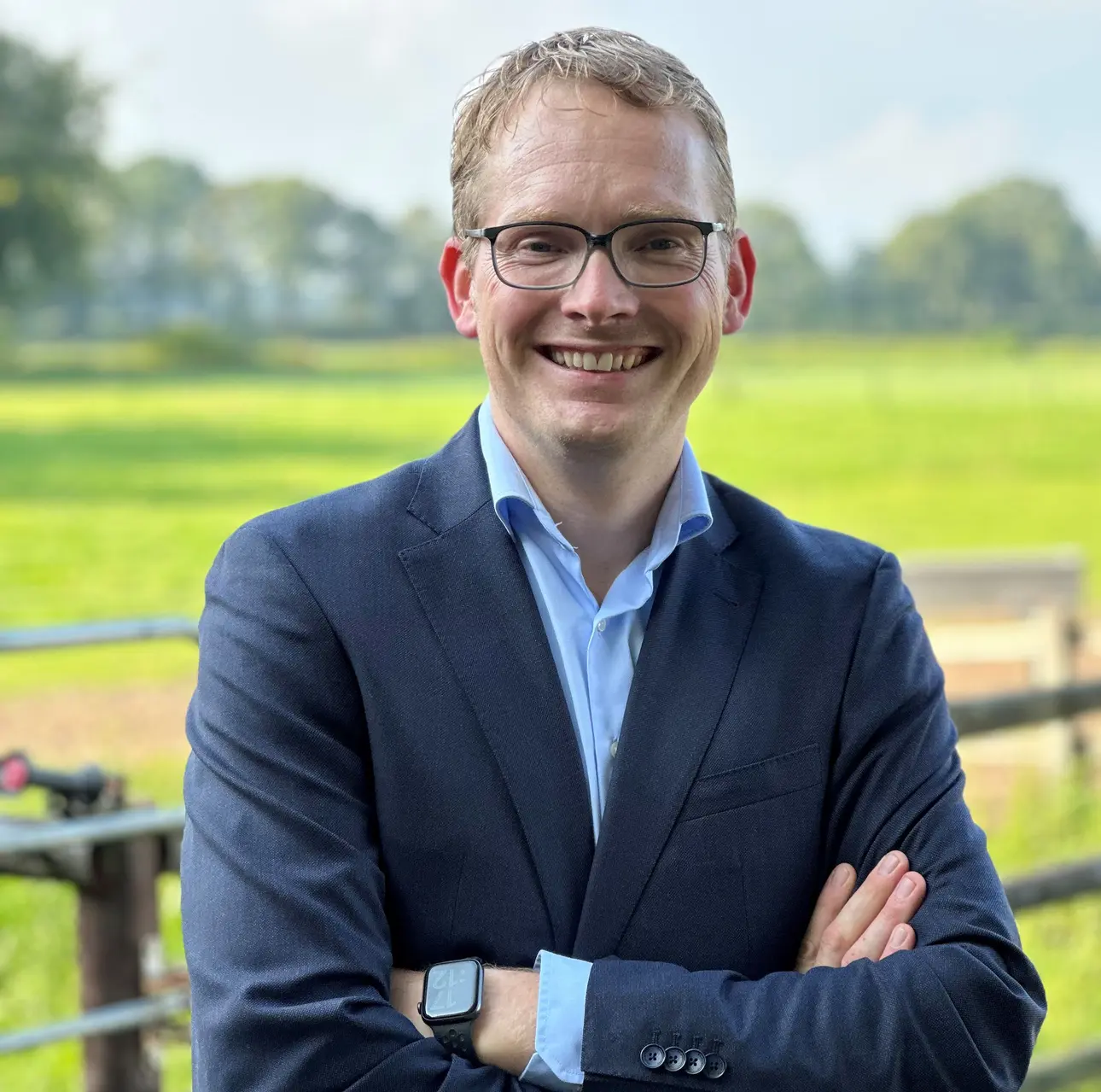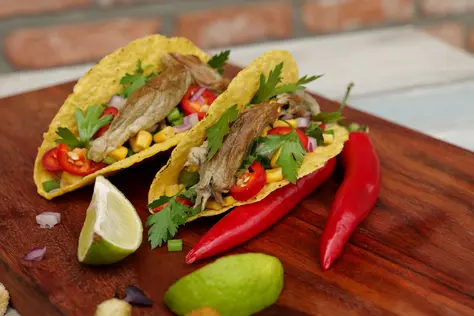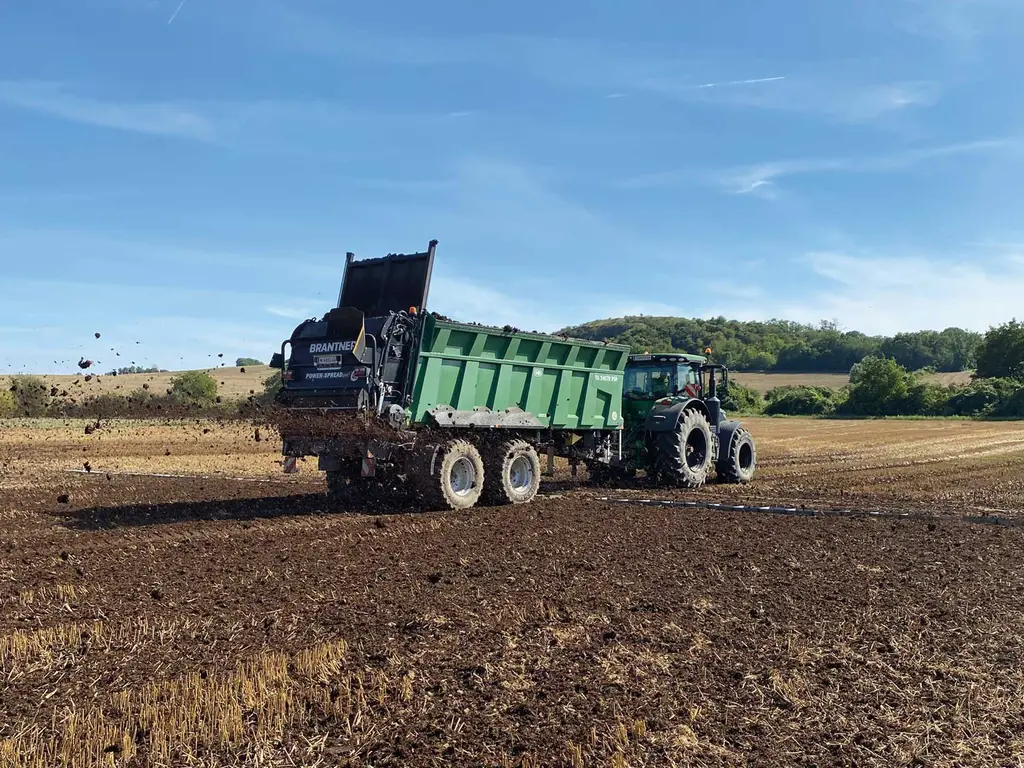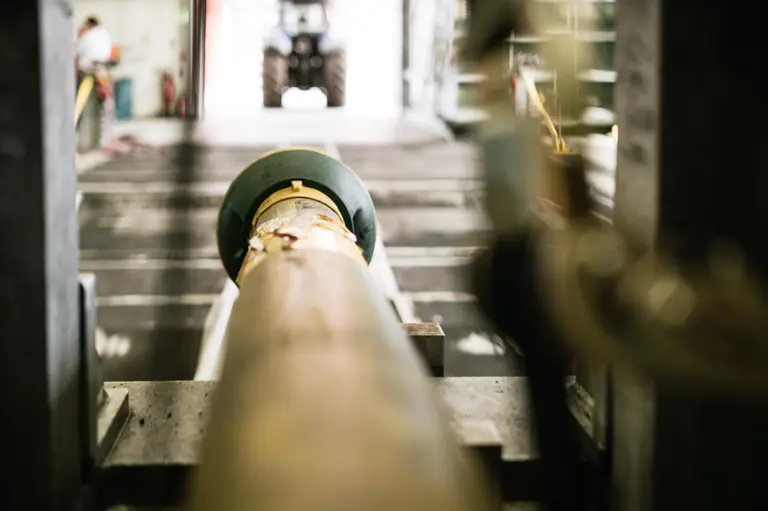Mr Wil Derks has been a DLG member for 20 years and comes from Holland. Since 1998, he and his wife Arina van Schaik have been farming a 1200-hectare farm near Egyházasrádóc in Hungary, close to the Austrian border. His main crops are wheat, rapeseed, barley, maize, soya and pumpkin. He constantly invests in soil cultivation, fertilisation, liming and green manuring. In addition to expert advisors, modern measurement techniques such as crop mapping, satellite images and N-sensors complement his many years of agricultural experience.
Mr Derks, how have modern measurement techniques such as crop mapping changed your agricultural practices?
The fields we farm were often neglected for years and the first major improvements such as levelling and weed control did not require sophisticated measurement technology. However, for more than 10 years we have been using newly available techniques to identify production variations within the often large plots and investigate their causes because we like to work as optimally as possible. On 1200 ha, they are a useful addition to the observations made by the employees on the tractor and by myself.
Can you give us some examples to illustrate this?
We based our soil analyses in both the topsoil and subsoil on yield mapping. My aim was basically to improve the poor areas and create more even plots. However, the tests on our farm often showed that some very poor areas could not be improved, but the relatively better areas could. This was mainly due to variations in the subsoil. As a result, we use additional inputs such as extra fertilisation or deep cultivation mainly to improve the average potential and minimise the use on the hopeless spots.
The N-sensor helps with better distribution of fertiliser on wheat, giving us a more consistent quality on our most important crop. And satellite images help to locate better and worse spots, and then make the best decisions based on personal perception, for example on fertilisation or harvest time.
Finally, competent advisors are very important. They keep us up to date with their expert view. As soon as you no longer know how to improve anything, you are no longer doing well as a company. We have had very good advisors from both Hanse Agro and NU Agrar with knowledge of the conditions in Hungary, and that has helped us a lot.
How important is cooperation with local businesses for your company? Are there specific criteria?
Our motto is long-term and pleasant co-operation with all our partners, i.e. with our employees, suppliers and customers. Our focus is on our own production, but by buying in products, we utilise our infrastructure better and are a larger and therefore more interesting distribution partner.
I've always enjoyed trading, and that's another reason. We only work with well-known, reliable farmers in the region, with whom we are in contact about variety selection or fertilisation during the season. All products that arrive at our farm are weighed and checked for quality.
How do you integrate the work with students into your daily practice? What are the main objectives of your internship programme?
Over the years, we have taken on more than 25 trainees from the Netherlands, Hungary and Austria. From vocational school to university. Our farm doesn't really need extra labour, we have permanent staff and would also have temporary staff to cope with peaks, which is easier than integrating trainees. However, we wanted to introduce interested young people to agriculture, our company, ourselves and, if they were foreigners, to Hungary.
Communication is always at the forefront and we are prepared to put our own energy into this. The more interest trainees show, the more information they can take away with them. Most of them understand this and are happy about it. But it has also happened that things didn't work out, that an intern was only interested in lots of tractor lessons and/or Netflix and not in the farm. I always find that very unfortunate.
However, we haven't had any interns for two years now because we've handed over part of the management and want to concentrate 100% on that.
Are there any specific indicators or goals in relation to sustainability that you are pursuing?
In terms of sustainability, we want to maintain our soil so that it remains productive in the long term. This includes:
- Choosing a responsible crop rotation,
- not working in the field in unfavourable (wet) conditions,
- Topping up nutrients where there is a shortage (even if it is not cheap),
- leaving crop residues on the field as much as possible to build up humus, and
- the use of animal manure.
We can see the effects of these efforts on the soil in the fact that our yields are significantly higher than in our neighbourhood. And we also see that the soil can cope with the stress for up to two weeks longer during periods of drought.
We are also happy to adopt good experiences from organic farming with the aim of using as few chemicals as possible. This is why, for example, we have converted the row cultivation of rape, maize, soya, pumpkin and lupins to a width of 50 cm. This enables mechanical weed control and band spraying.

How do you measure your success in terms of social responsibility?
On the one hand, we focus on our employees, including the interns I mentioned earlier. We have about ten employees, which is a number that you can build a personal relationship with. It starts with speaking the Hungarian language well enough, living here yourself, being present in the company and eating together in the canteen, paying the staff well (including clothes, telephone, etc.) and showing interest, having trust and encouraging their development, and being an interesting company with technological innovations, excursions, etc.
Our group is stable, there are employees who have been with us for 10 years or more, which is a measure of satisfaction.
Another point is the focus on the village, on the environment. We invest in infrastructure maintenance (dirt roads, drainage, snow clearing), in social infrastructure by financially supporting children's camps, the school, village festivals, etc., and we are personally involved in the local administration. We have been given a great opportunity to build our business here and the community should also benefit from it.
What aspects of DLG membership are particularly valuable? Which DLG trade fairs have you attended?
I have always been very enthusiastic about the DLG trade magazine. Very comprehensive and informative, more than is available in the Netherlands. And a visit to Agritechnica is always on my programme, I meet old and new acquaintances there and come back with new ideas.










































































